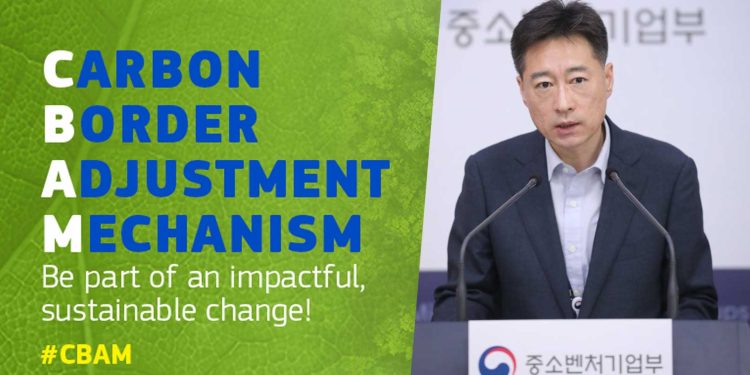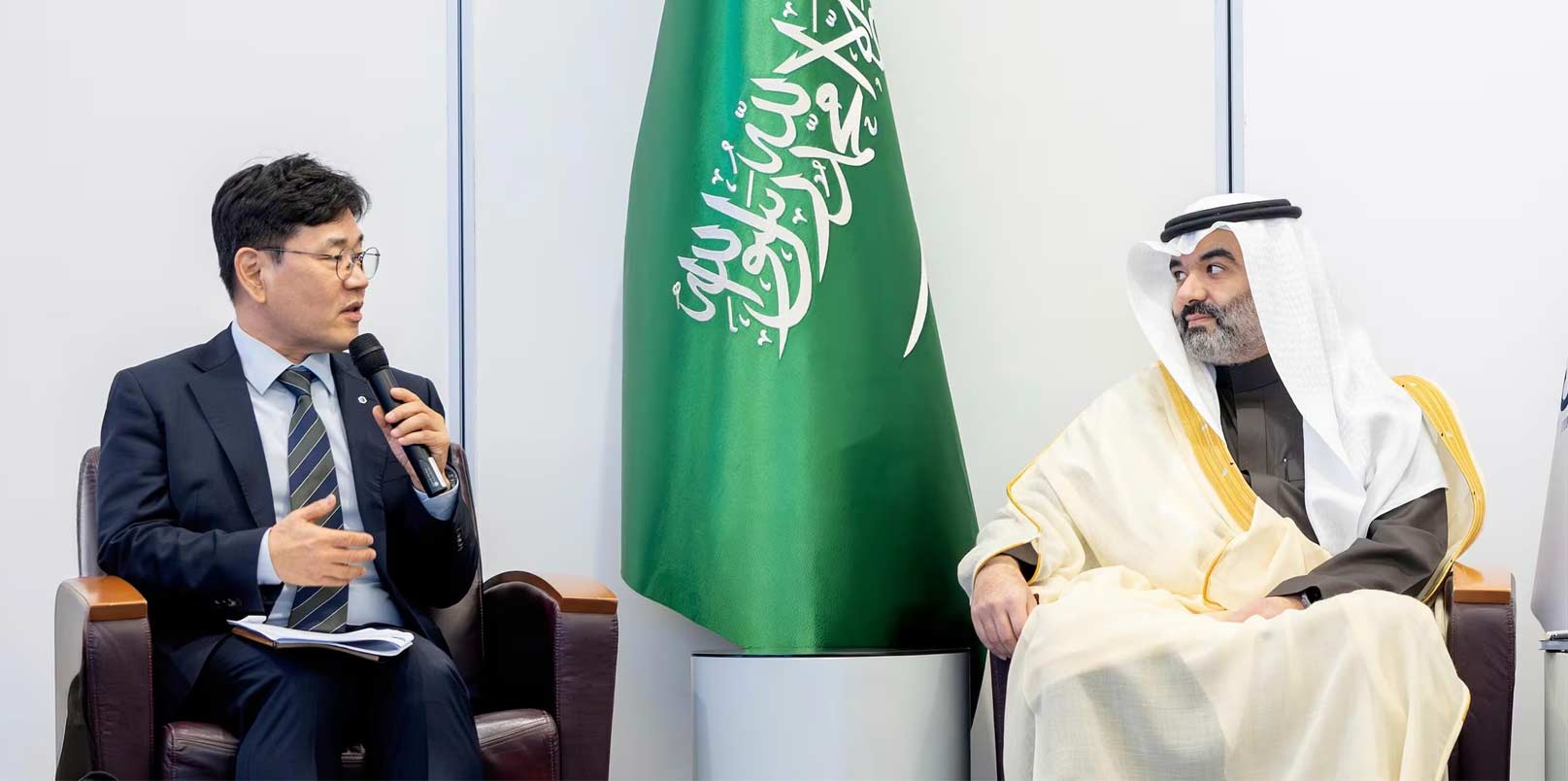The countdown to the European Union’s carbon border rules (EU CBAM) is accelerating—and Korea’s SMEs are getting ready. By mobilizing ministries, research institutes, and support agencies, the government is helping exporters strengthen their carbon tracking, certification, and data systems—transforming sustainability compliance into a core driver of industrial innovation and trade resilience.
Korea’s Cross-Ministry Effort Strengthens SME Preparedness for EU Carbon Rules
South Korea is stepping up policy coordination to help its small and medium-sized enterprises (SMEs) adapt to the European Union’s Carbon Border Adjustment Mechanism (EU CBAM) ahead of its full implementation in 2026.
On October 17, 2025, the Ministry of SMEs and Startups (MSS), together with the Ministry of Trade, Industry and Energy (MOTIE), the Ministry of Climate, Energy and Environment, and the Korea Customs Service, hosted the 4th Government-Wide CBAM Briefing Session in Daejeon.
The event gathered over 150 company representatives and policy experts to review the EU’s finalized CBAM framework and explore strategies to strengthen SMEs’ carbon accounting and reporting capacity.
EU CBAM and Korea’s Regulatory Adaptation
The EU’s Carbon Border Adjustment Mechanism (CBAM) is part of its Green Deal initiative to reduce global carbon leakage by imposing carbon pricing on imported goods that emit significant greenhouse gases during production.
With the EU confirming revisions under its Omnibus Package on September 29, small importers handling less than 50 tons per year are now exempted, and the system’s emission reporting and verification procedures have been simplified.
For Korean exporters—especially SMEs that manufacture steel, aluminum, cement, and chemical products—the CBAM introduces both administrative and operational challenges. That is why, recognizing these hurdles, the Korean government has organized multiple cross-ministry sessions this year to help companies understand emission metrics, adopt certified reporting tools, and prepare for the EU’s next compliance phase.
At the latest session, experts from KITECH (Korea Institute of Industrial Technology), the Korea Foundation for Quality (KFQ), and KMAC Consulting delivered in-depth analyses of CBAM regulations, carbon emission calculation methods, and template completion guides.
The event also featured real-world case studies from SMEs already exporting to Europe, demonstrating how companies are building internal systems and introducing automatic emission calculation software to streamline reporting.
Korea’s Response to EU CBAM: From Regulation to Opportunity
Park Yong-soon, Director-General for Technology Innovation Policy at the MSS, said the government aims to ensure Korean companies are not caught off guard by new environmental trade measures:
“We will continue to resolve the challenges companies face in responding to CBAM and help them prepare effectively for global environmental regulations. Also, we encourage Korean firms to use government support systems and strengthen their carbon reduction capacity, transforming regulation into an opportunity for growth.”
KOSME President Kang Suk-jin echoed the same commitment, noting that cross-agency cooperation is essential.
“This briefing provides practical help for companies developing carbon response strategies. As CBAM takes full effect in 2026, we will continue to assist SMEs in building global competitiveness through early, structured preparation.”
Turning Carbon Regulation into a Growth Driver
CBAM compliance is more than a regulatory necessity—it is becoming a strategic pathway for Korea’s SME competitiveness and sustainability leadership.
By linking climate policy and export strategy, Korea is aligning its industrial innovation and trade policy to support the global low-carbon transition.
The government’s multi-agency approach represents a shift toward “policy as infrastructure”—where ministries collaborate to embed green compliance into everyday business operations.
This model strengthens SMEs’ long-term competitiveness by integrating digital carbon tracking systems, emission data management tools, and international certification readiness into their workflows.
And so, the swift response to EU CBAM policy shows that Korea’s SME sector is ready to toward sustainable export resilience, making it more attractive in an era of rising carbon accountability across supply chains.
EU CBAM Policy: A Blueprint for Korea’s Sustainable Export Growth
Yes, the EU’s CBAM may initially appear as a trade barrier, but for Korea, it has become a catalyst for industrial transformation.
The nation’s coordinated policy framework—uniting ministries, agencies, and innovation institutions—is not only protecting exporters but also nurturing a new class of carbon-literate SMEs ready for the era of sustainability-linked trade.
As the 2026 enforcement deadline approaches, Korea’s proactive engagement offers a roadmap for other Asia-Pacific economies: turning environmental regulation into a foundation for cleaner, smarter, and globally competitive growth.
🤝 Looking to connect with verified Korean companies building globally?
Explore curated company profiles and request direct introductions through beSUCCESS Connect.
– Stay Ahead in Korea’s Startup Scene –
Get real-time insights, funding updates, and policy shifts shaping Korea’s innovation ecosystem.
➡️ Follow KoreaTechDesk on LinkedIn, X (Twitter), Threads, Bluesky, Telegram, Facebook, and WhatsApp Channel.






